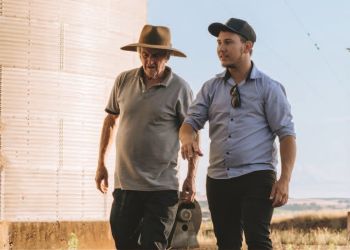At-risk populations, those with access and functional needs such as people with disabilities, older adults, and individuals with chronic or temporary medical conditions, face unique challenges during natural and manmade disasters. As communities prepare for the start of hurricane season coupled with ongoing response to COVID-19, a newly re-released report by NACCHO in collaboration with Office of the Assistant Secretary for Preparedness and Response (ASPR) offers lessons learned and promising practices to meet the needs of at-risk populations before, during, and after disaster response.
The report’s findings come from a workshop convened in 2016 with Home and Community-Based Service (HCBS) providers and local health departments (LHDs) impacted by Hurricane Sandy. It offers several findings that will help to ensure the well-being of these population during this unprecedented time and will help LHDs better understand how to effectively work with HCBS organizations locally.
Key Findings
- Identify the underlying social determinants of health that impede mission success. These included poverty and access to healthcare. HCBS organization clients faced significant challenges navigating the bureaucracy of the disaster recovery process.
- Build healthy and resilient communities through preparedness activities. Individuals who had support from family, friends, neighbors, or other community members were better able to access social and medical services and disaster recovery resources such as programs for temporary shelter/housing, repairing, or rebuilding housing, and behavioral health services.
- Keep operations flexible. Having the flexibility to consolidate operations into fewer sites during an emergency can address potential short-term gaps or shortages to ensure continuity of services in the aftermath of a disaster. Consider renting versus purchasing equipment to alleviate costs.
Lessons Learned
Communications
- Consider alternate communications channels to staff and clients including text messaging, social media, and website posts. Determine approaches for hearing and vision impaired individuals.
- Utilize door-to-door assessments to locate and confirm the safety of clients unreachable through alternative methods.
- Maintain and secure a centralized database (i.e. local/state registry of clients).
Staffing
- Anticipate possible staffing shortages; encourage flexibility in staffing assignments and employee cross-training.
- Consider flexible schedules during a disaster.
- Develop job aid tools for essential tasks to enable alternate staff to backfill and ensure continuity of services.
- Ensure behavioral health services and implement ongoing worker safety and emergency preparedness training to ensure greater workforce resilience.
Transportation
- Reassign staff to provide immediate services in their home neighborhoods or from alternate locations in the event of suspension or closure of public transit. Use passenger vans to shuttle staff to and from work sites.
- Work with local emergency managers before an emergency to ensure HCBS provider staff are considered essential and able to travel to client locations to ensure continuity of care.
Administration
- Develop a standard intake screening tool that can facilitate rapid assessment of clients across organizations.
- Provide a Shelter Field Guide to support those selecting or designing shelters or planning space use at shelters.
- During a declared disaster or public health emergency, ensure that some sections related to patient information of the HIPPA Privacy Rule are waived to facilitate patient information.
- Increase awareness among HCBS organizations about the role of federal agencies and state disaster resources and how to request available support.
- Maintain electronic access to client records, such as medications and specialized equipment needs









